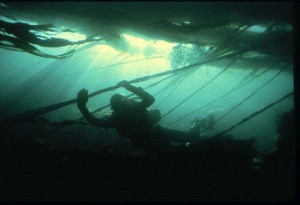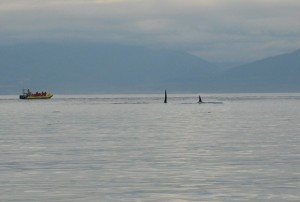BACKGROUND:
In recent years, we have started to acknowledge that the concept of “Ecosystem Services ” is one which has to be acknowledged since failing to do so leads to a rapid decline in our quality of life:  This file explores that idea further and invites you to contribute to the project :
This file explores that idea further and invites you to contribute to the project :
DEFINING THE ECOSYSTEM SERVICES of RACE ROCKS.
It is our hope that while you are helping us to assemble the values of these Ecosystem services for Race Rocks, you may be motivated to look in your own back yard and start placing a more realistic value on your own Ecosystems’ Services. ” Even today’s technology and knowledge can reduce considerably the human impact on ecosystems. They are unlikely to be deployed fully, however, until ecosystem services cease to be perceived as free and limitless, and their full value is taken into account.
OBJECTIVES: After doing this assignment,students will be able to:
1. Define what is meant by the terms ecosystem services.2. Define what is meant by the term Natural Capital.3. Enumerate the Ecosystem Services of Race Rocks.4. Design a plan to enumerate the Ecosystem Services of a local ecosystem.
PROCEDURES:
1. Using the references below, investigate what is meant by Natural Capital and Ecosystem Services. Make a table where you can list the ecosystem services which you think are provided by an area like Race Rocks. In the table make a dollar estimation of the value of that service per year.
2. Using the area where you live, make a list of the ecosysterm services provided by your local ecosystems, and rate which you think are the most important.
3. Enter your observations of an ecosystem service that you see being provide by Race Rocks along with any illustrating image from the Race Rocks area that helps illustrate it.
Here are some ideas to get you started:
- You will observe commercial whale/marine mammal/bird/-watching boats in the area.. how many passengers do they carry and what is the value generated per trip?
- You may see tankers and others vessels going by . Race Rocks has a lighthouse and foghorn.. What is the value to ships of the set navigation aids of Race Rocks ?
- Research is done at Race Rocks by students of schools, colleges and universities? What is the value of this location for research and education?
- The presence of an Ecoguardian has a value for safety and security of the island. What is the value of this?
- The presence of an Ecoguardian is important as eyes and ears for marine safety in an area of open water that has often challenged mariners considerably. What is the value of having such a person in that location?
- Research for tidal energy production occurred at Race Rocks. What was the value of this research to Clean Current, to BC Parks, to the BC government, to Pearson College?
- The protection of habitat for fisheries regeneration when a marine reserve is established has a direct economic value. Using the example of similar values attributed to other MPAs in the world, estimate what the value is to Race Rocks
- A number of viewers around the world use Race Rocks as a location for bird and animal viewing. See the examples from England which are linked to the Daily Log
- The establishing of marine protected areas for marine resource conservation is a world wide goal. How does the Management Plan for Race Rocks reflect ecosystem services provided by the area. http://www.env.gov.bc.ca/bcparks/planning/mgmtplns/race_rocks/racerock.html
BACKGROUND REFERENCE: From:
http://www.oceansatlas.org/servlet/CDSServlet?status=ND0xOTAwMS4xO
TAwNiY2PWVuJjMzPWRvY3VtZW50cyYzNz1pbmZvUNEP – WCMC Ecosystem services ‘Ecosystem goods’, such as food, and ‘services’, such as waste assimilation, represent the benefits humans obtain from a properly functioning ecosystem and are usually referred together as ‘ecosystem services’. Unsurprisingly a large number of ecosystem services have been identified, especially for the oceans which cover the majority of the planet and the coastal zone where the majority of humans live.The red high-lighted topics below might have a relevance for Race Rocks:These include: gas regulation (e.g. maintaining a balanced chemical composition in the atmosphere),
climate regulation (e.g. control of global temperature, precipitation, greenhouse gas regulation, cloud formation)
disturbance regulation (e.g. storm protection, flood control, drought recovery),
water regulation (e.g. regulation of global, regional and local scale hydrology through currents and tides),
water supply (e.g. storage of water returned to land as precipitation),
erosion and sediment transport/deposition (e.g. moving sediments from source areas and replenishing depositional areas),
nutrient cycling e.g. the storage, internal cycling, processing and acquisition of nutrients, nitrogen fixation, phosphorus cycles),
waste treatment (e.g. the breakdown of excess xenic and toxic compounds),
biological control (e.g. the trophic-dynamic regulation of populations),
refugia (e.g. feeding and nursery habitats for resident and transient populations of harvested species),
food production (e.g. the portion of gross primary production which is extracted as food for humans),
raw materials (e.g. the portion of gross primary production which is extracted as fuel or building material),
genetic resources(e.g. sources of unique biological materials for medicines),
recreation (e.g. opportunities for tourism, sport and other outdoor pastimes) and cultural (e.g. opportunities for aesthetic, artistic, educational, spiritual activities).
The value (the theoretical cost of artificially replacing the services were they not to be provided by nature) to humanity of these ecosystem services has been estimated at $8400 billion per year for the open oceans and 1.5 times this for coastal ecosystems. Consumptive use (production of food and raw materials) is a minor (<5%) component and therefore the true value of marine ecosystems is in non- consumptive use. However quantifying such use is notoriously hard.
Adapted from the reference:
The structure and function of ecological systems in relation to property right regimes. In: Hanna, S., Folke, C., Maler, K.G. (Eds.), Rights to Nature. Island Press, Washington, DC, pp. 13 34. Authority. Research Publication No. 35, Townsville, Australia, pp. 83. ( DOCUMENT ) Author(s) / Editor(s) Costanza, R., Folke, C., 1997. Adapted from the reference:
The structure and function of ecological systems in relation to property right regimes. In: Hanna, S., Folke, C., Maler, K.G. (Eds.), Rights to Nature. Island Press, Washington, DC, pp. 13 34. Authority. Research Publication No. 35, Townsville, Australia, pp. 83. ( DOCUMENT ) Author(s) / Editor(s) Costanza, R., Folke, C., 1997.
USEFUL REFERENCES ON THIS TOPIC:
1. Patterns of a Conservation Economy: True Cost Pricing
http://www.conservationeconomy.net/natural_capital.html
2. Ecosystem Services:
http://www.conservationeconomy.net/ecosystem_services.html
3. Securing Canada’s Natural Capital:
http://neia.org/wp-content/uploads/2013/04/securing-canadas-natural-capital.pdf
4. Results of National Survey on Ecological goods and Services
http://www.maweb.org/documents/document.300.aspx.pdf
References specializing in Marine Ecosystem Services:Aquatic ecosystems provide many services contributing to human well-being . Maintenance of the integrity and the restoration of these ecosystems are vital for services such as water replenishment and purification, flood and drought control.
5. Marine Ecosystems report: http://www.davidsuzuki.org/publications/downloads/2009/marine_ecosystems_report_web.pdf
A report on ecosystem services in the Pacific North Coast Integrated Management Area (Pncima) on the British Columbia coast.
6.IUCN Commision o Ecosystem managemant : Ecosystem Services
7. Marine Ecosystems And Fisheries- Aquarium of the Pacific http://www.aquariumofpacific.org/images/mcri_uploads/Marine-Ecosystems.pdf
8. Economic Valuation of Ecosystem Services
http://judylumb.com/eco-services.html
- “It is most important to raise consciousness of the general public and of public officials and managers of the value of ecosystem services. Here are some ways that individual friends might choose.
1) Educate ourselves about ecosystem services.
2) Monitor local news for issues that impact ecosystem services to point out areas of public concern when ecosystem services are destroyed or disregarded.
3) Speak truth to power — communicate with local officials and congressional representatives about the implications of their decisions on ecosystem services.
4) Hold agencies to the environmental and public input requirements of the laws.
5) Make certain that preservation of ecosystem services is among the options presented.
6) Write letters to the editor to educate the public about ecosystem services”
9. Ecosystems and Human Well-being
Ecosystems and Human Well-Being is the first product of the Millennium Ecosystem Assessment, a four-year international work program designed to meet the needs of decision-makers for scientific information on the links between ecosystem change and human well-being. The book offers an overview of the project, describing the conceptual framework that is being used, defining its scope, and providing a baseline of understanding that all participants need to move forward.
The Millennium Assessment focuses on how humans have altered ecosystems, and how changes in ecosystem services have affected human well-being, how ecosystem changes may affect people in future decades, and what types of responses can be adopted at local, national, or global scales to improve ecosystem management and thereby contribute to human well-being and poverty alleviation. The program was launched by United Nations Secretary-General Kofi Annan in June 2001, and the primary assessment reports will be released by Island Press in 2005.
